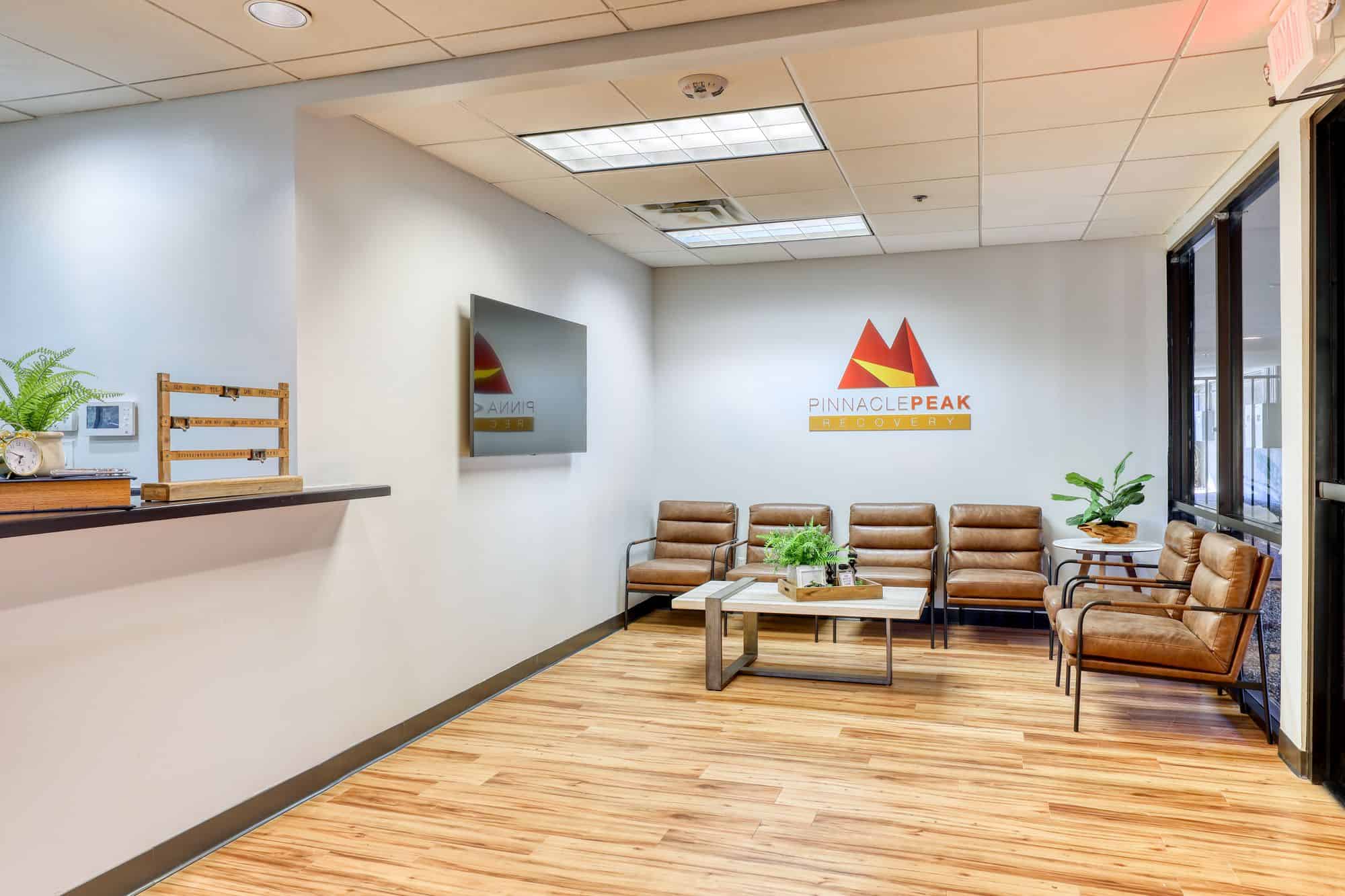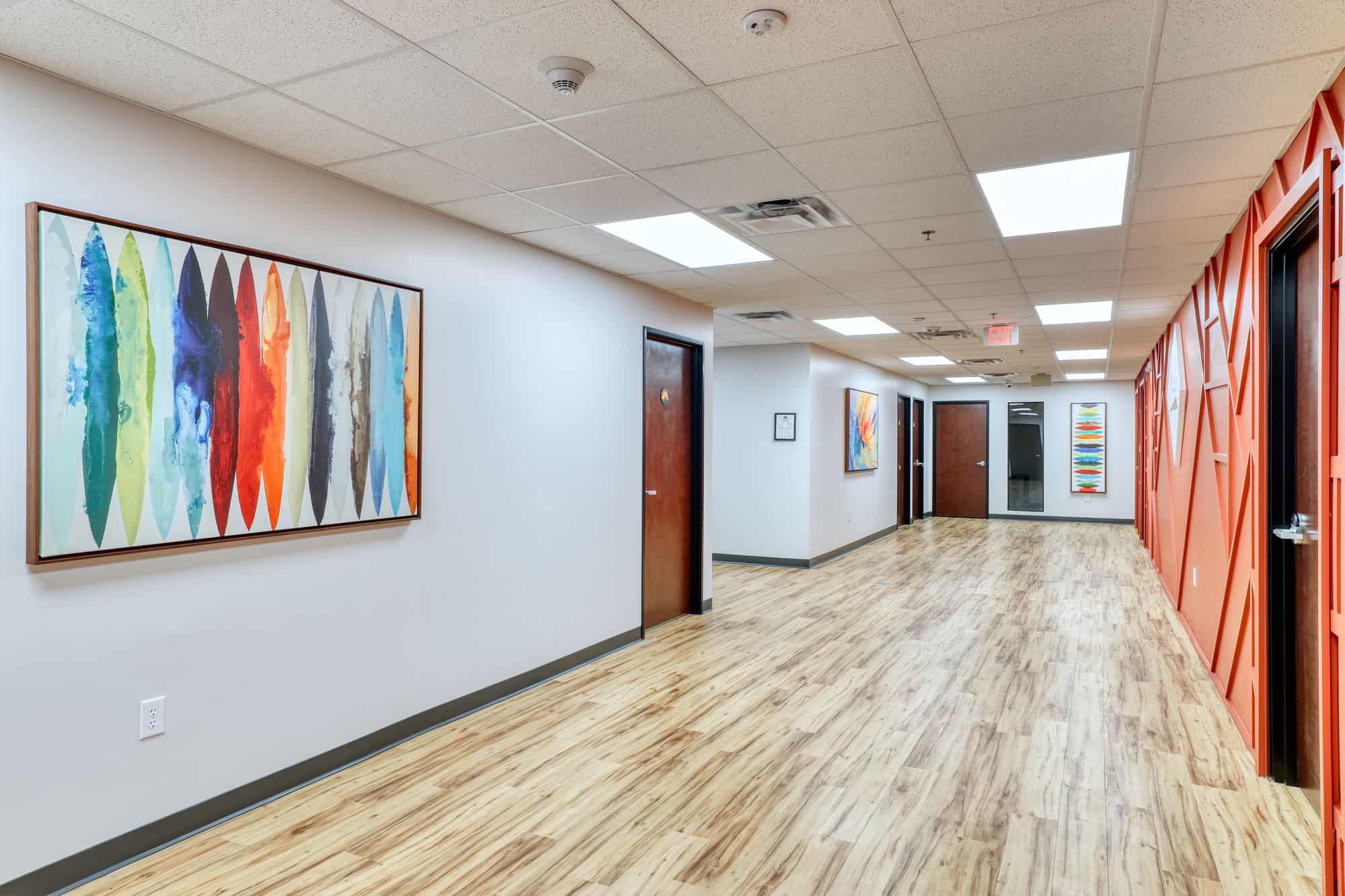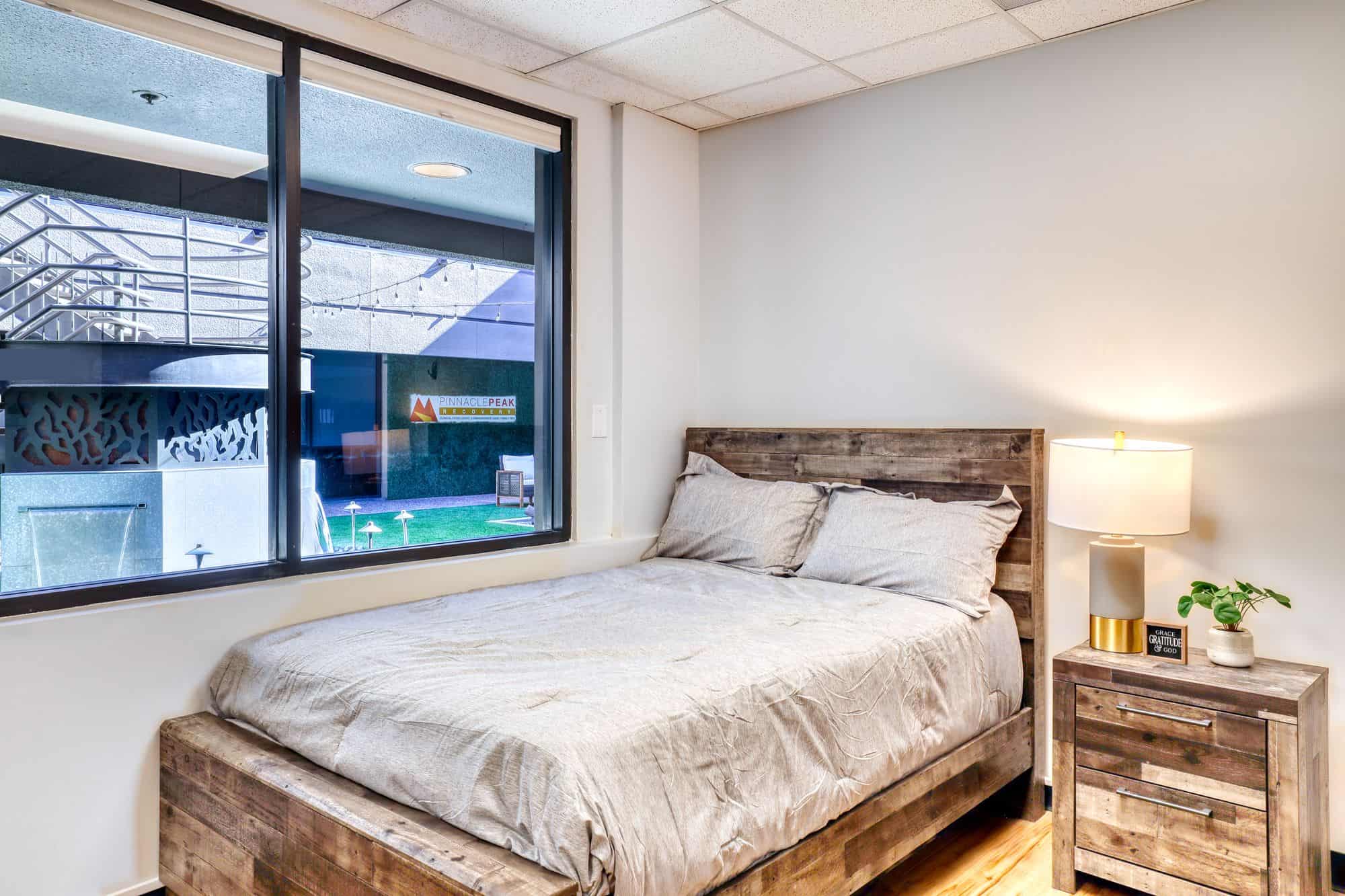Inpatient Rehab Program in Arizona
What Exactly is an Inpatient Rehab Program For Behavioral Issues or Substance Use?
Inpatient rehab is a setting designed to provide education, skills training, and comprehensive therapy for people that struggle with mental health, trauma, or substance use disorders. In many cases, you stay at a rehab facility 24/7.

In the 2018 survey, 9.52% of Arizona residents reported using illicit drugs in the past month, nearly 1% higher than the national average
Some centers allow visits to your family or time away from the rehab center after reaching certain treatment milestones.
Many inpatient rehab centers offer a comfortable, supportive atmosphere geared towards recovery. Some centers, like Pinnacle Peak Recovery in Scottsdale, Arizona, even have a resort-like setting with luxury amenities, scenic views, access to fitness classes, and adventure opportunities. Your privacy and confidentiality are major priorities for the center. Getting treatment shouldn’t be something you are ashamed of, but many people prefer to keep their personal information private during their stay.
One major advantage of this type of treatment is the structured environment. Inpatient drug rehab allows a person to once again take control of his or her life with predictable schedules, designated duties, and the ability to develop positive behavioral habits that support a sober life.
You may be wondering if you need to stay at a facility all day and night. For some, home life is a major trigger to drug and alcohol use. The constant exposure to people and places that trigger or enable your addictive behaviors can easily keep you from getting a solid footing in your recovery.
Inpatient treatment is a chance for you to essentially hit the reset button on your thoughts and actions. With the help of knowledgeable professionals and like-minded peers, you can begin the process of self-discovery.
Inpatient Addiction Treatment Means Turning Away From Excuses Toward New Beginnings
“Sure, I’ll get help, but on my terms and I don’t need to stay anywhere.”
“I can’t afford some long stay somewhere.”
“My kid/spouse/parent/job needs me, so I don’t have time.
You can think of many so-called obstacles but let’s examine the benefits:
- My family life is suffering and I need to make a big lifestyle change.
- My daughter will be graduating soon and I want to be present in mind as well as body during her senior year, not cooped up alone with my depression and a bottle in the bedroom.
- My company is paying towards this through our employee assistance program because they believe in my talents.
- My friend Derrick’s wife got better here and has been sober for two years. Her grandkids are allowed to visit again.

You can stop imagining a normal life and start rebuilding yourself, with trained professionals to assist you. You can build a new life in recovery and do the work to get better, not just talk about it to get people to back off so you head back out to use. Life is full of paths and choices, and we want to be a part of your team as you choose to rediscover yourself without substances.
Is Inpatient Drug Rehab Right for Me?
How do you know if inpatient alcohol/drug rehab is right for you or your loved one? In many cases, you can talk to a specially trained intake counselor before deciding on any program. The counselor will take the time to listen to your story, struggles, and goals for treatment without judging or lecturing you.
During a routine assessment, you may find that some situations make inpatient rehab an excellent option. These can include:
- Severe drug or alcohol use: If you use drugs or alcohol for a long time or use them excessively, even to the point where your life may be in immediate danger, rehab can help manage the taxing withdrawal symptoms. It can also be a fine place to start the process of positive change.
- Chaotic home life: Living with other drug or alcohol users or having an unstable home environment can sabotage your treatment. Time away can help you regroup and refocus your attention on living a better life.
- Not responding to lower levels of care: If you attempt outpatient or intensive outpatient programs but find it difficult to maintain sobriety while at home, rehab can give you the added support you need to find success.
- Recently out of a drug detox program: For some, especially chronic alcohol or opiate users, the medically-managed detox is the first crucial step of care. Once the drug leaves your system, however, the real work begins. For example, alcohol rehab can help you discover the reasons alcohol took over your life and take steps to change these root causes.
- First-time treatment: Once you decide to seek treatment, you will want every tool available to make it successful. This type of drug rehab offers around-the-clock support to help change your life and prevent relapse.
- Change of scenery: Sometimes taking a break from the stressful life that has led to your addiction is enough to jump-start your desire to rejuvenate your life.
A significant benefit to inpatient rehab is the possibility of co-occurring disorders. Many people turn to substances to cope with an underlying mental disorder, which can be evaluated during intake.
According to the National Institute on Drug Abuse,1 of the 20 million American adults that suffer from a substance use disorder, 40% also had a mental disorder; likewise, 18% of the 40 million adults diagnosed with mental disorders had a substance disorder. It’s a complex issue and doesn’t mean one caused the other, but both need treatment separately.
Together, you and an admissions counselor can discuss the available treatment options, empowering you to make the best choice for your needs.
Pinnacle Peak’s Approach to Inpatient Drug/Alcohol Treatment
Programs like Pinnacle Peak Recovery offer a full continuum of care. Instead of moving progressively through multiple organizations, you can find the programs you need in one place. If you require placement in a lower level of treatment or after-care services, you can access them seamlessly without the hassle of switching facilities.
As the fastest-growing state in the country, Arizona’s population creates a diverse need for resources like housing, schools, and healthcare.
We are equipped with a care team that brings its expertise in the mental health and substance use fields to our patients with a multidimensional therapeutic approach toward healing and recovery.
Our commitment to your healthcare or your loved one’s is one of compassion with a family feel while offering clinical excellence. Our top-rated rehab facility in Scottsdale and surrounding cities have programs to serve people with substance use disorders or behavioral health conditions. These programs are based on the mission that healing is possible by embracing a new design for living.

The Purpose of Inpatient Is Not
Rehab is not a place to “get fixed” and get right back out to your old routine.
Inpatient Is
Rehab is a start to begin healing and recovery both in mind and body. It is a way to gain skills to function stronger in day-to-day living, and leave with a support plan for continuing recovery goals while practicing your newly-found sobriety.
Pinnacle Peak’s Team Treats Rehab Clients Like Family
We’re availing ourselves to you 24/7 with our services, treatment in a scheduled, productive environment removed from the everyday noise of life, while in a residential home-like setting for your comfort.
Immersing yourself in an environment for an extended period, you can give the needed attention to learning a better way of handling stress or depression.
Pinnacle Peak Offers Help Clients With Therapy Techniques in Rehab
We focus our approach on evidence-based techniques such as Cognitive Behavioral Therapy (CBT) and Dialectic Behavioral Therapy (DBT). We also incorporate the 12-step approach and will work with those who need medications.
Cognitive Behavioral Therapy (CBT)
CBT works to help clients healthily balance their feelings to produce positive behaviors, rather than destructive ones. Some skills gained for recovery behaviors are anticipating things that could trigger their thoughts and breaking learned behavior patterns.
Dialectical Behavior Therapy (DBT)
DBT is another method of using skills to redirect learned behaviors when emotions and stressful situations present themselves. These skills are learned both one-on-one and in group environments, allowing clients to share their improvements and offer support for each other.
12-Step Approach to Addiction
The 12-step approach stems from a mutually beneficial support program based on the steps first developed through Alcoholics Anonymous. It has expanded to include other support programs such as gambling and overeating, keeping the principles of recovery the same. Recognizing past misdeeds, making amends, and helping others is part of the 12-step process.
What Our Valued Patients Say About Our Center
How Long Does Inpatient Rehab Last?
Time in drug rehabilitation treatment often depends on you. Are you engaged in treatment? Have you and your loved ones worked with the family therapist? Are you reaching your treatment goals? Do you truly seem motivated to change? These factors all contribute to your length of stay.
Some residential treatment programs last a few weeks. For other people, more extensive treatment is necessary. Recovery isn’t one-size-fits-all. Your drug history, support network, and progress through treatment play an important role in the length of your treatment.
Of course, this time is an investment in your future. It’s a relatively short time in your life when you can finally face your challenges and get the support you may never have had a chance to experience. Embrace it.
Pinnacle Peak Recovery is here for you as you or your loved one pursue inpatient treatment for a new way of life. Call us today at 866-377-4761 and let us welcome you through our healing doors.
Call Our Beautiful Arizona Inpatient Rehab Center Today!
Inpatient FAQs
What Is a Inpatient Treatment?
Inpatient treatment is client-centered 24-hour care in a licensed facility for an extended period. Adults and children can be admitted into programs, typically for mental health or substance use treatment. Programs may be specifically tailored for men or women as well as children in specific age groups.
